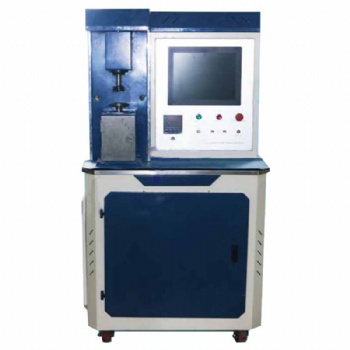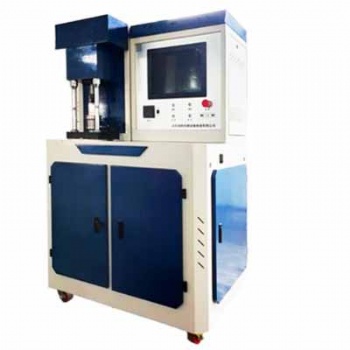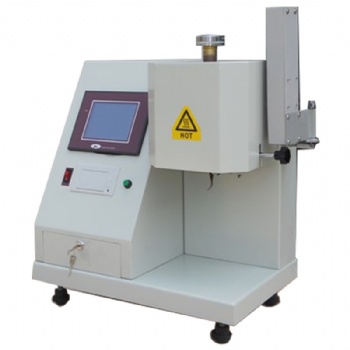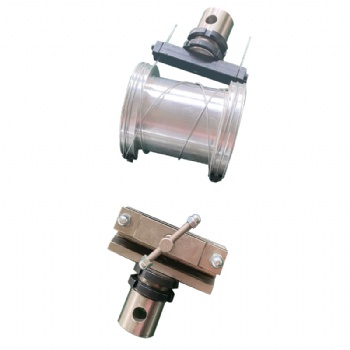News
Understanding the 90-Degree Peel Testing Machine
Understanding the 90-Degree Peel Testing Machine
A 90-Degree Peel Testing Machine is an essential instrument used to measure the adhesion strength between two bonded materials, typically at a 90-degree angle. This type of testing is crucial in evaluating the performance and reliability of adhesives, coatings, and laminates. Here's an in-depth look at what a 90-Degree Peel Testing Machine is, how it works, and its applications.
What is a 90-Degree Peel Testing Machine?
A 90-Degree Peel Testing Machine is designed to determine the force required to peel one material away from another at a 90-degree angle. This angle is chosen because it closely simulates real-world conditions where materials are subjected to similar peel forces. The machine provides quantitative data on the adhesion strength of materials, which is essential for ensuring product quality and performance.
How Does It Work?
Sample Preparation: The materials to be tested are prepared by bonding them together using the adhesive or coating in question. The bonded samples are then cut to a specific size and shape according to testing standards.
Setup: The prepared sample is mounted in the testing machine. One part of the sample is attached to a fixed base, while the other part is secured to a moving grip.
Peeling Process: The machine applies a peeling force to the moving grip, pulling the bonded materials apart at a 90-degree angle. The force required to peel the materials apart is measured and recorded.
Data Collection: The machine provides data on the peel force, which is often displayed in units of force per unit width (e.g., Newtons per centimeter). This data helps in assessing the strength of the adhesive bond.
Analysis: The results are analyzed to determine the adhesive strength and performance of the materials. This can include examining the maximum peel force, the behavior of the adhesive under stress, and any failure modes.
Key Features of 90-Degree Peel Testing Machines
Precision Measurement: These machines offer precise measurement capabilities, ensuring accurate data on adhesive strength and performance.
Adjustable Parameters: Users can adjust parameters such as peel rate, test length, and environmental conditions to meet specific testing requirements or simulate different scenarios.
Digital Interface: Modern machines are equipped with digital displays and user-friendly interfaces, making it easier to configure tests and interpret results.
High-Resolution Data: Advanced models provide detailed data and graphical representations of peel strength, aiding in comprehensive analysis and reporting.
Versatility: The machine can test a wide range of materials, including adhesives, films, coatings, and laminates, making it suitable for various applications.
Applications of 90-Degree Peel Testing Machines
Packaging Industry: Ensures that labels, tapes, and packaging films adhere properly and maintain their bond during use and handling.
Automotive Industry: Evaluates the adhesion of automotive components and assemblies, such as bonding agents and trim attachments, to ensure durability and reliability.
Electronics: Tests adhesive films and coatings used in electronic devices, ensuring they provide long-term adhesion under operational conditions.
Construction: Assesses adhesive materials used in construction, such as sealants and bonding agents, to ensure they perform effectively in various environmental conditions.
Research and Development: Utilized in R&D labs to develop and refine adhesive products and technologies, providing critical data for product optimization.
Advantages of Using a 90-Degree Peel Testing Machine
Accurate Adhesion Testing: Provides reliable data on the strength of adhesive bonds, which is crucial for product development and quality control.
Simulates Real-World Conditions: The 90-degree angle replicates practical usage scenarios, offering relevant insights into adhesive performance.
Enhances Product Quality: Helps manufacturers optimize adhesive formulations and bonding techniques, leading to improved product performance and customer satisfaction.
Compliance with Standards: Many machines are designed to meet industry standards, aiding in regulatory compliance and certification processes.
Efficiency and Consistency: Streamlines the testing process and ensures consistent results, reducing the need for manual checks and increasing overall testing efficiency.
Conclusion
The 90-Degree Peel Testing Machine is a vital tool for evaluating the adhesion strength of materials. By providing precise measurements and simulating real-world conditions, it helps ensure that adhesives and coatings meet the required performance standards. Whether used in manufacturing, packaging, automotive, electronics, or research, this testing machine offers valuable insights into adhesive performance, contributing to higher product quality and reliability.
Categories
Contact Us
- +86-18615632092
- wtbequipment@hotmail.com
- sophie-tester
- +86-18615632092




 售前客服
售前客服